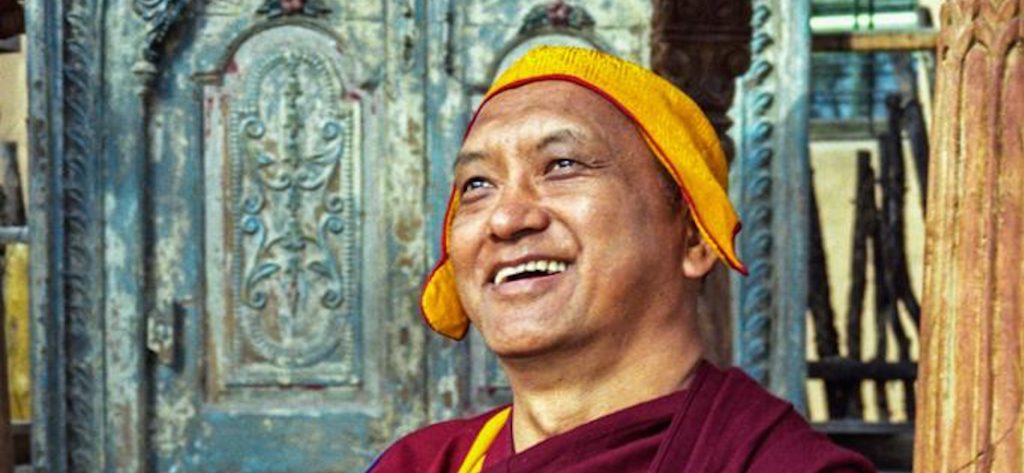Our meeting the spiritual friend, the spiritual master, who reveals the right path, is like the stick that meets the gong.
-Lama Zopa Rinpoche
In this talk Lama Zopa Rinpoche explains how the nature of our mind is the source of our freedom. It is simply a matter of gathering the causes and conditions to remove the temporary obscurations and reveal our mind of clear light. Like a stick hitting a gong, meeting a qualified teacher is essential to activate this potential for enlightenment. These teachings were given Singapore in January 1993. You can read along with the transcript at https://www.lamayeshe.com/article/chapter/nature-mind-meeting-guru

Podcast: Play in new window | Download


